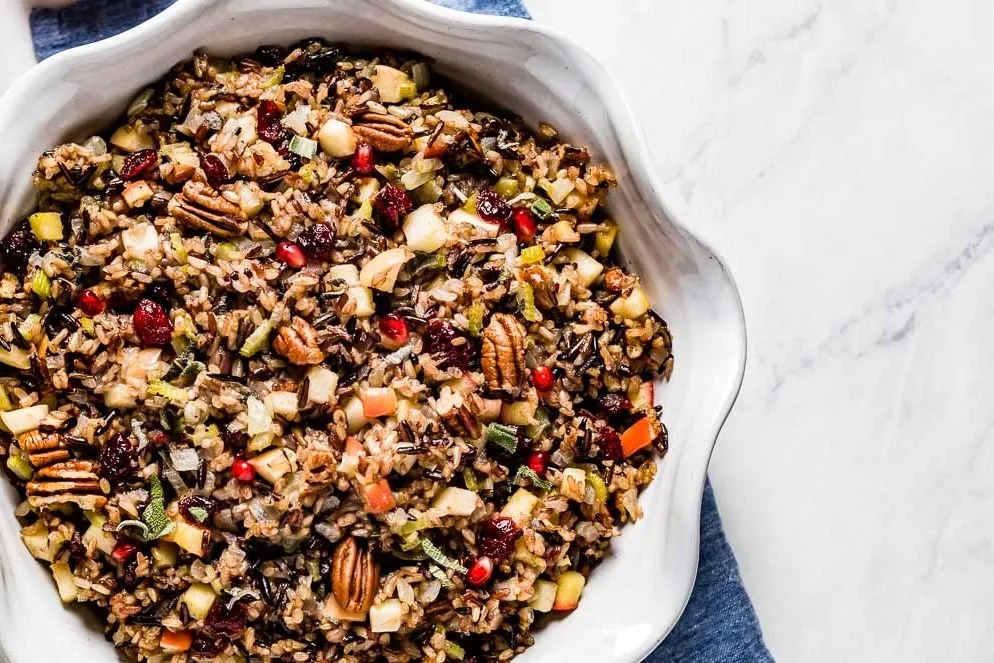When it comes to managing blood sugar, the goal isn’t necessarily to lower it but to establish an eating routine that keeps levels steady throughout the day and night. Many people don’t realise that blood sugar fluctuations can affect more than energy, poor sleep is actually a significant indicator of blood sugar imbalances. Night-time peaks and troughs mirror those during the day, creating a vicious cycle where disrupted sleep further impacts blood glucose regulation. This makes it harder to choose healthful foods and keep energy levels steady.
Blood sugar naturally rises and falls, which is part of being human. Healthy activities like exercise temporarily increase blood sugar to fuel activity, and morning levels rise as the body prepares for the day. The problem occurs when these changes turn into spikes and crashes due to poor food choices, stress or inadequate sleep. Instead of gentle waves, we experience a rollercoaster effect. This leads to energy dips, sugar cravings, sleep disturbances and fat accumulation around the middle.
Here’s how to establish stable, rolling blood sugar levels and unlock the benefits of metabolic flexibility:
1. Hydrate Like It's Your Job
Your body’s cells rely on fluid to communicate and balance blood sugar. To calculate your daily hydration needs, multiply your weight in kilograms by 0.04. This gives you a baseline in litres. Add more if you are breastfeeding, exercising intensely or sweating heavily.
Pro tip: Consider adding a pure electrolyte complex to your water. This helps your body use fluids more effectively and replenishes salts lost during blood sugar fluctuations.
2. Prioritise Protein
Protein is a game-changer for blood sugar stability. Aim for approximately 30g per meal, especially in the morning. Eat at least half your protein alongside vegetables before consuming carbohydrates. Protein’s thermic effect, which is the energy required to digest it, slows energy release from other foods and helps balance blood sugar.
For those who eat animal protein, 90-100g of meat, fish or poultry typically meets this target. Plant-based eaters can turn to tofu, tempeh or a high-quality protein powder as supplements. Because plant proteins have a lower anabolic impact you would need to consume more. Those who follow an omnivorous diet would want 0.8-1.2grams of protein per kilogram of body weight, whereas plant based eaters would need to aim for 1.2-1.5g protein per kilogram of body weight due to the metabolic differences between them.
3. Un-Process Your Diet
Ultra-processed foods (UPF) are designed for addiction. They maximise consumption while minimising satisfaction, leading to frequent eating and more blood sugar fluctuations. Start by swapping in high-fibre carbohydrates such as baked potatoes (with skin), beans, pulses or brown rice instead of white bread, pasta and noodles.
Another trick is to cook and cool your white carbs to create resistant starch, which has a reduced blood sugar impact. Natural, minimally processed foods support your body’s hunger signals, making it easier to stick to a consistent eating routine.
4. Say No to Grazing
Frequent snacking keeps your blood sugar in a constant state of flux. Instead, focus on structured meals spaced 3.5 to 4 hours apart. This allows your system to regulate blood sugar without constant input and promotes metabolic flexibility. Metabolic flexibility is your body’s ability to shift between burning carbohydrates and stored fats for energy. Over time, this routine often leads to a natural 12 to 14-hour gap between dinner and breakfast.
Address habitual hunger, which often stems from boredom or dehydration. Pause, assess and rewrite your response to these triggers.
The Benefits of Balance
By stabilising blood sugar, you can enjoy:
- Consistent Energy: No more mid-afternoon crashes or reliance on caffeine.
- Better Sleep: Restful nights become the norm.
- Reduced Sugar Cravings: Freed from constant fluctuations, you will naturally gravitate towards balanced meals.
- Improved Metabolism: Your body’s ability to burn stored energy strengthens, making weight management easier.
The steps are simple but powerful. Hydrate well, focus on protein, un-process your diet and commit to regular meals. With these habits, you will smooth out the blood sugar spikes and dips, setting the stage for long-term health and vitality.

.jpg)



.png)



.jpg)
.png)



.jpg)
.jpg)
.jpg)
.jpg)
.jpg)
.jpg)
.jpg)
.jpg)
.jpg)

.jpg)
.jpg)
.jpg)
.jpg)
.jpg)
.jpg)
.jpg)
.png)
.jpg)
.png)

.png)
.jpg)


.png)
.png)
.png)
.png)
.png)


.png)
.png)






